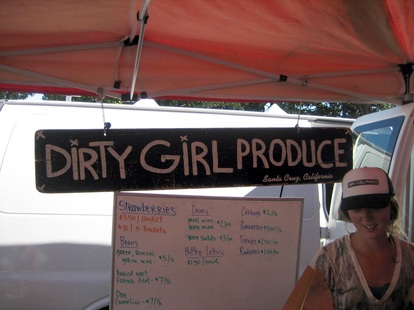
It's day three and I feel like I'm reaching the maximum speed on the information treadmill. My mind is running with as all kinds ideas sparking from all that we are learning. As I sit and absorb, I feel so fortunate to be receiving this level of instruction without having to enroll in a semester long course. Immersion is where it's at!
Today's classroom lesson was devoted in large part to biodiversity and the interactions between species. Organic farms don't use chemical pesticides, herbicides and fertilizers. Instead, they rely on natural systems to manage and nurture the balance like planting different crops together which push & pull pests and nutrients from each other. Not only have studies proven that you'll have higher yields than conventional farms per acre but you'll be putting back into the environment versus taking away. If you want to learn more about the benefits of biodiversity for both plant health and pest management, check out this article by Miguel Altieri (we were honored to have Miguel as one of our guest speakers today).
But my soapbox for the day is...we need to shift the sustainable food revolution away from being an environmental movement and towards a social movement. As a social movement, we'll be able to garner more support because more people can relate to social issues, i.e. health, jobs, justice, etc... Access and availability to quality, healthy food is as much as social movement as it is an environmental one. Through the process they will understand the environmental benefits. At the same time, we need to take lessons from developing countries like those in South America who can mobilize 2 million or more people within 24hrs. for a social demonstration or protest (Miguel shared this fun fact with me too). They use buzz marketing tactics where a core group of organizers call a sub-group of connected people who sound the alarm to area communities where word spreads like wildfire. I'm sure they use Twitter and Facebook but those forms of social media are easy to ignore. When it's direct, you feel the urgency and make the connection between the issue and your own welfare much faster. If we had rallies of this magnitude in the US, we would get some stuff done in this country.

 RSS Feed
RSS Feed
